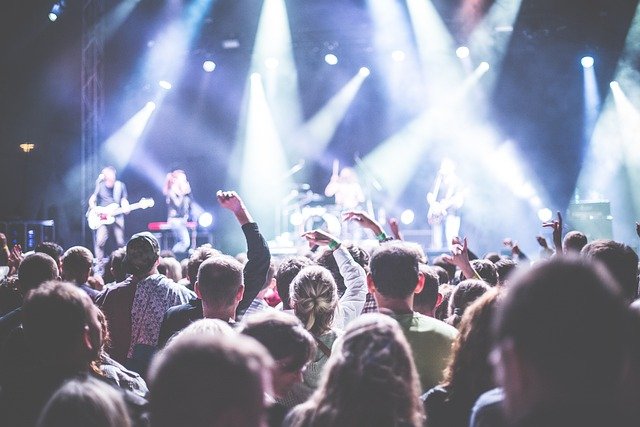Sonic Citizenship: Music Festivals as Microcosms of Society
Introduction: Dive into the world of music festivals, where rhythm and community intertwine to create unique social ecosystems. These gatherings are more than just entertainment; they're laboratories of human interaction, reflecting and shaping broader societal trends. Read below to explore how these sonic cities offer insights into our evolving social fabric.

The Evolution of Festival Culture
Music festivals have come a long way from their counterculture roots in the 1960s. What began as expressions of rebellion and alternative lifestyles has transformed into a multi-billion dollar industry that attracts millions of attendees worldwide. This evolution mirrors broader societal shifts, from the idealism of the hippie era to the experience-driven consumerism of today’s millennials and Gen Z.
The modern festival landscape is diverse, ranging from massive mainstream events like Coachella to niche gatherings catering to specific genres or subcultures. This diversity reflects our increasingly fragmented cultural landscape, where individuals seek spaces that align with their personal identities and values.
Temporary Autonomous Zones and Social Experimentation
Music festivals often function as temporary autonomous zones - spaces where traditional social norms are suspended, and new forms of interaction can emerge. This phenomenon, first described by philosopher Hakim Bey, allows attendees to experiment with alternative modes of living and relating to one another.
Within the festival grounds, hierarchies often dissolve, and strangers form instant communities. This social fluidity can lead to profound experiences of connection and belonging, challenging the isolation that many feel in their day-to-day lives. The temporary nature of these communities also raises questions about the sustainability of such intense social bonds and their impact on participants’ lives beyond the festival.
Economic Microcosms and Alternative Currencies
Festivals are not just cultural spaces; they’re also economic ecosystems. Many events experiment with alternative economic models, such as cashless systems or festival-specific currencies. These experiments offer insights into the potential for new forms of economic organization in the broader society.
Some festivals, like Burning Man, operate on gift economies, where monetary transactions are discouraged in favor of freely given goods and services. This radical departure from mainstream economic norms challenges attendees to reconsider their relationship with money and material possessions, potentially influencing their behavior in the outside world.
Environmental Stewardship and Sustainability Practices
As awareness of environmental issues grows, music festivals have become important sites for promoting and practicing sustainability. Many events now incorporate eco-friendly initiatives, from zero-waste policies to renewable energy sources. These efforts not only reduce the environmental impact of the festivals themselves but also serve as educational platforms for attendees.
The challenge of creating sustainable temporary cities mirrors the larger societal struggle to build environmentally responsible communities. Innovations in festival sustainability, such as compostable packaging or solar-powered stages, often find applications beyond the festival grounds, contributing to broader environmental solutions.
Technology and Social Connection in Festival Spaces
The integration of technology into festival experiences offers a microcosm of our increasingly digital society. Mobile apps for navigation, scheduling, and connecting with other attendees have become standard features, reflecting the broader trend of tech-mediated social interactions.
However, many festivals also encourage digital detoxes or create tech-free zones, recognizing the value of unmediated human connection. This tension between technological integration and disconnection mirrors larger societal debates about the role of technology in our lives and relationships.
Identity Formation and Cultural Exchange
Music festivals serve as spaces for identity exploration and cultural exchange. Attendees often adopt festival personas, experimenting with new styles of dress, behavior, and self-expression. This temporary identity play can have lasting impacts on individuals’ sense of self and their place in society.
Moreover, festivals that bring together diverse musical traditions and cultural practices create opportunities for cross-cultural understanding and appreciation. In an increasingly globalized world, these events can foster empathy and challenge prejudices, potentially contributing to greater social cohesion beyond the festival grounds.
Lessons from Ephemeral Cities
As ephemeral cities of sound and celebration, music festivals offer unique windows into human behavior and social organization. They serve as laboratories for alternative social structures, economic models, and cultural practices. While the party eventually ends, the insights gained from these temporary communities can inform our understanding of broader societal trends and possibilities for social change.
By studying the dynamics of music festivals, we gain valuable perspectives on community building, sustainability, technology’s role in human interaction, and the ongoing evolution of cultural identity in the 21st century. As these sonic gatherings continue to evolve, they will undoubtedly remain rich sources of insight into the changing nature of human society and connection.






